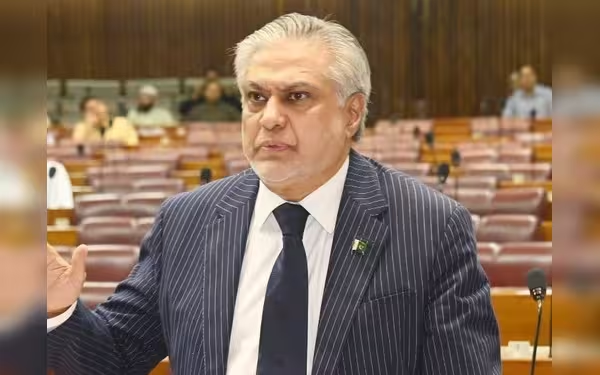Saturday, November 16, 2024 07:33 PM
Political Leaders Engage in Crucial Discussions in Pakistan
- Bilawal Bhutto Zardari meets PML-N delegation.
- Focus on constitutional amendments and coalition-building.
- Discussions impact governance and legislative processes.
 Image Credits: tribune.com.pk
Image Credits: tribune.com.pkKey political leaders in Pakistan engage in discussions on constitutional amendments, impacting governance and legislative processes.
The political landscape in Pakistan is currently abuzz with activity as key leaders engage in crucial discussions that could shape the future of governance in the country. Recently, a significant meeting took place where Bilawal Bhutto Zardari, the Chairman of the Pakistan Peoples Party (PPP), met with a delegation from the Pakistan Muslim League-Nawaz (PML-N). This meeting is particularly important as it highlights the ongoing efforts to build consensus among major political parties regarding vital constitutional amendments.
During the meeting, Bilawal provided a detailed briefing to the PML-N delegation, which included Law Minister Senator Azam Nazir Tarar. According to sources, the discussions centered around Bilawal's overnight talks with Maulana Fazlur Rehman, the chief of Jamiat Ulema-e-Islam-Fazl (JUI-F). The primary focus of these talks was to align views on the draft of the constitutional amendment and to assess the numbers needed for its passage in both the National Assembly and the Senate.
This kind of political maneuvering is not uncommon in Pakistan, where coalition-building is often necessary to achieve legislative goals. The ability to gather support from various factions can significantly influence the success of proposed amendments. As the political climate continues to evolve, the importance of these discussions cannot be overstated. They represent a critical step towards ensuring that the legislative process remains robust and responsive to the needs of the people.
The ongoing political activity in the capital reflects a broader trend of collaboration among parties that may lead to significant changes in the governance framework of Pakistan. As citizens, it is essential to stay informed about these developments, as they have the potential to impact various aspects of daily life, from economic policies to social reforms. The outcome of these discussions will not only determine the fate of the constitutional amendment but also set the tone for future political interactions in the country.













